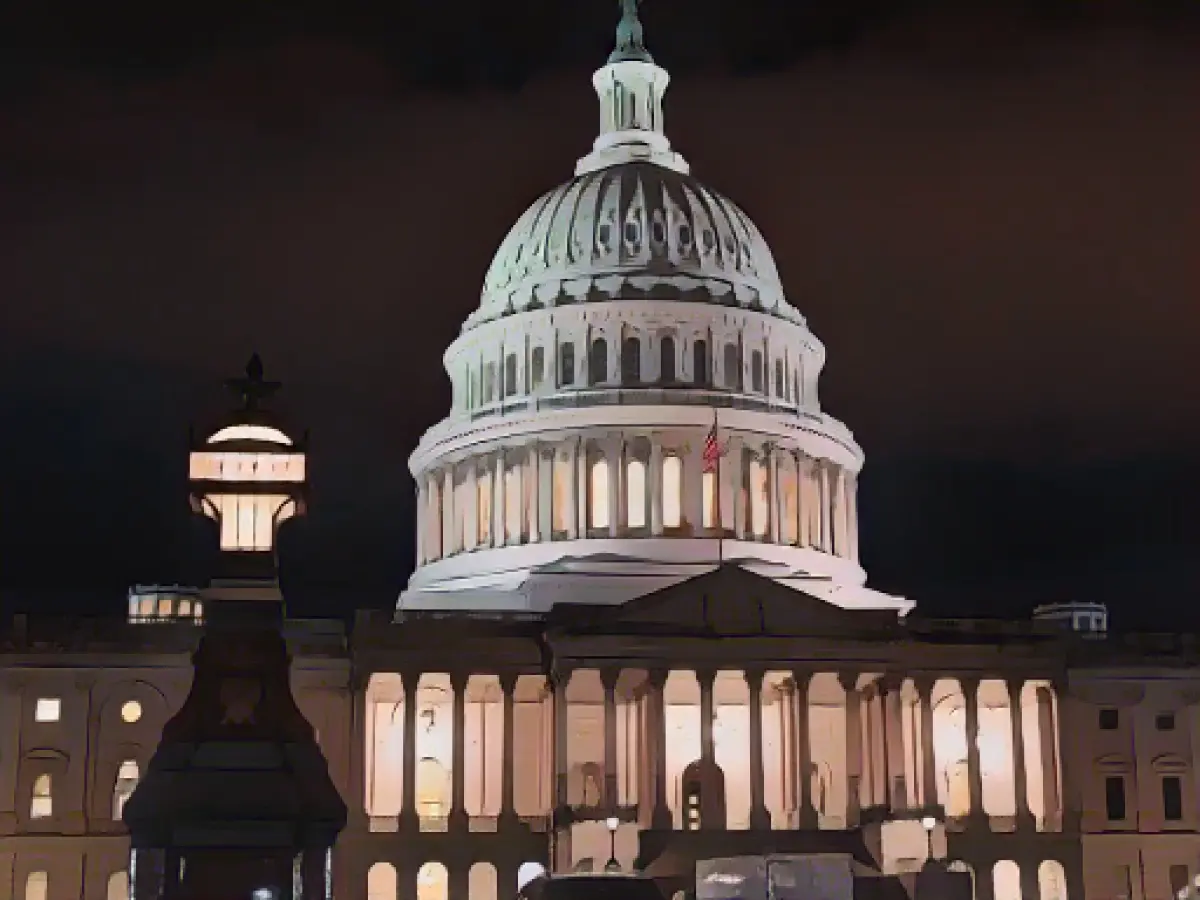Averting disaster – Senate approves temporary budget, but funding for Ukraine and Israel remains uncertain
The looming government shutdown in the United States has been narrowly avoided, but the financial backing for Ukraine and Israel remains undecided. Late Wednesday night, the Senate followed suit with the House of Representatives, voting in favor of a temporary budget. With 87 senators in favor and 11 against, employees in various sectors of the public sector would have faced unpaid salaries starting Saturday without approval.
The provisional budget fails to include the $3.7 billion aid requested by President Joe Biden for Israel and Ukraine, as well as funds for strengthening border protection with Mexico. These issues will need to be addressed in separate deliberations at a later date, along with negotiations for a long-term budget. Biden still needs to sign off on the draft.
In the run-up to the vote, John Kirby, National Security Council Communications Director, emphasized the necessity of swift action to allocate further aid for Ukraine. "There's no alternative – we must secure additional funding for Ukraine to maintain their fight against Russian aggression," Kirby stated. Senate Majority Leader Chuck Schumer confirmed that discussions on Ukraine funding would take place in the coming weeks.
The newly passed bill will provide for about 20% of the required funding for government operations and agencies until January 19, including resources for military and veteran services, agriculture, and transportation. The remaining 80% of the budget, consisting of departments such as State, Commerce, Labor, and Health, will be funded until February 2.
Budget standoff stirs political strife
The temporary budget was only passed in October and was set to expire on Saturday. Consequently, a workable solution had to be found in order to avoid insolvency in the public sector. The current interim budget did not include any new funds for Ukraine. The skepticism and outright rejection of support for Ukraine by Republicans have been on the rise following Russia's attack.
The annual budget standoffs have become a predictable ritual – lawmakers typically rely on a stopgap budget to postpone the funding debates for a few months.
Enrichment Insights:
Ukraine
- Foreign Aid Freeze: The U.S. freeze on foreign aid, initiated under the “America First” policy during the Trump administration, has affected various forms of aid, including military support for Ukraine, which previously received significant funding.
- Impact on Ukraine: The freeze on foreign aid has had significant impacts on Ukraine, particularly in its efforts to repel a Russian invasion – this includes a halt in funding for weapons and other critical support.
Israel
- Exception to the Freeze: Israel is an exception to the broader freeze on foreign aid in the United States. They continue to receive significant financial support, including $3.3 billion annually through the Foreign Military Financing (FMF) and $500 million for missile defense programs, as part of a 10-year Memorandum of Understanding (MOU) stretching through 2028.
- Negotiations for the Next MOU: The ongoing discussions concerning the next MOU, expected to start in fiscal 2029, are crucial in determining the future of U.S. assistance to Israel for the decade that follows.








